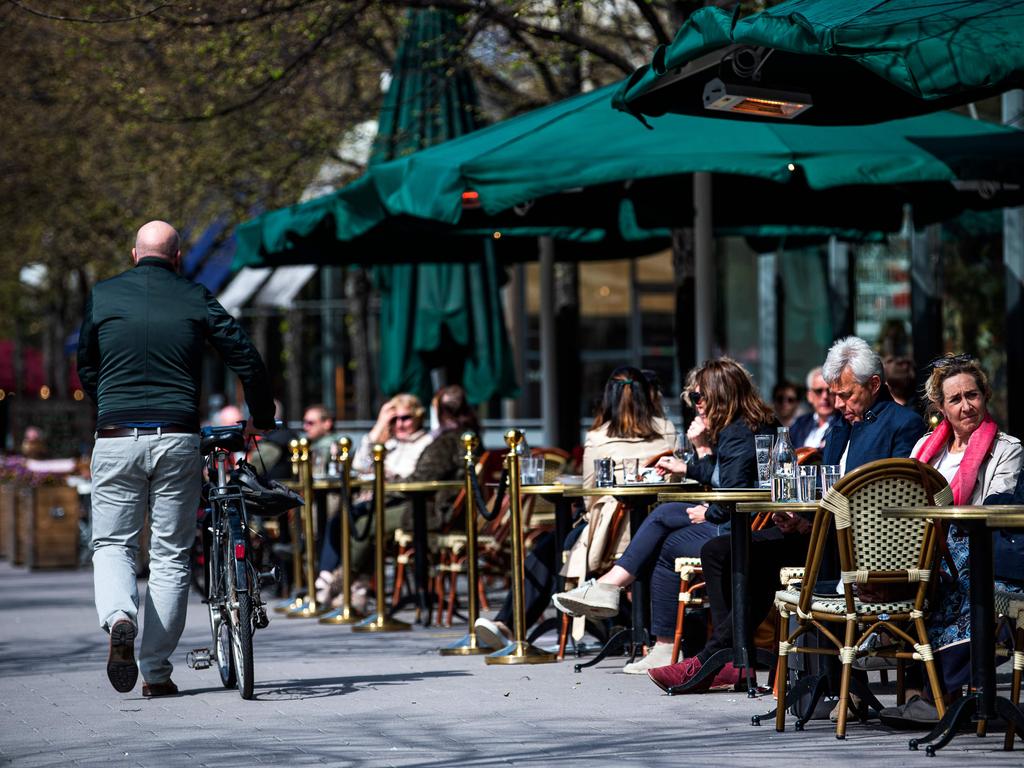Coronavirus: Locking down just elderly and vulnerable would have saved lives, economies, research suggests
Following Turkey to lock down elderly and vulnerable, not whole populations would have saved lives and economies, research argues.

Turkey’s ambassador has declared his country’s response to the coronavirus “one of the most successful” in the world as research emerged that argued locking down the elderly and vulnerable, rather than entire populations — what Turkey did — would have saved lives and limited economic damage.
The cost of limiting the spread of the coronavirus, expected to be the biggest global recession since the 1930s, could have been cut by almost 60 per cent and the number of lives lost reduce by 45 per cent, according to four professors at Massachusetts Institute of Technology.
“Existing evidence shows very large differences in hospitalisation and fatality rates between age groups,” the study, published by the US National Bureau of Economic Research, stated. Around 5 per cent of deaths of or with COVID-19 have been aged 60 or under in Europe.
The four authors advocated locking down “those above 65 until a vaccine arrive [to] release young and middle age groups back into the economy much more quickly”.
“Targeted policies can significantly improve both on public health and economic outcomes,” they added.
In contrast to most countries, which issued uniform multi-week stay at home orders, Turkey introduced such orders only for over 65s and those who suffered from chronic illnesses on 21 March, relaxing them on May 6.
“Such illnesses include a weak immune system, chronic lung disease, asthma, chronic obstructive pulmonary disease, cardiovascular disease, hypertension and kidney and liver disease,” Korhan Karakoç, Turkey’s ambassador, said.
“Our recovery rate is almost 75 per cent. The pandemic has been contained,” he told The Australian.
New infections and deaths have been falling since mid April, leaving Turkey with around 50 deaths per million as of yesterday, a much lower figure than practically almost all of Europe and North America.
Turkey, whose largest city Istanbul has a population of 15 million, was “at the crossing point between Europe and Asia where dire concerns over the virus remain”, the ambassador said.
Argument contradicts health authorities
The suggestion contradicts health authorities in most countries, who have asked governments to enforce social distancing and widespread economic shutdowns for six to eights weeks.
“The majority of the gains can be achieved with a simple targeted policy that applies an aggressive lockdown on the oldest group and treats the rest uniformly,” the study said. The authors, including renowned trade economist Darren Acemoglu, recommended “temporarily reducing visits to older relatives or regulations that segregate the times when different demographic groups can go to grocery stores and pharmacies”.
“Semi targeted policies that combined with identification and isolation of infected individuals can lead to even larger gains [and] … may obviate the need to have lengthy or even any lockdown of younger groups,” they added.
The analysis came as state premiers mulled over how soon to lift restrictions on businesses and inter-state borders, and nations grappled with how to limit infection rates once restrictions as restrictions began to ease.
“The risk is that increased contacts, as lockdown restrictions fade, will push the reproduction number back above one and generate a second wave of infection,” said JP Morgan analyst David Mackie, who also advocated age-based lockdowns.
“Ease restrictions on those parts of the population who are least vulnerable to hospitalisation and death: essentially, younger individuals without co-morbidities” he said.








To join the conversation, please log in. Don't have an account? Register
Join the conversation, you are commenting as Logout